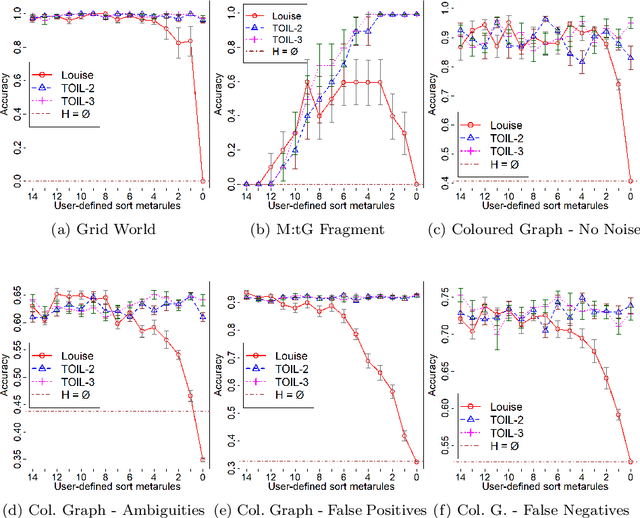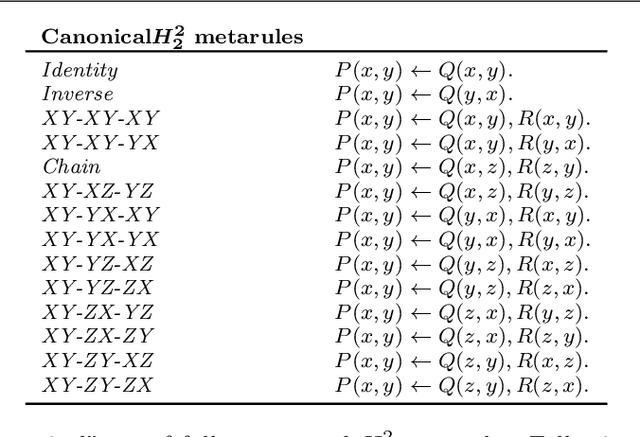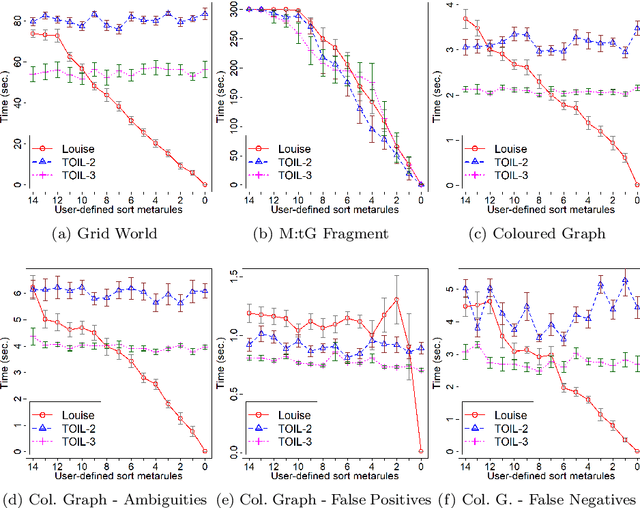Meta-Interpretive Learning as Metarule Specialisation
Paper and Code
Jun 09, 2021



In Meta-Interpretive Learning (MIL) the metarules, second-order datalog clauses acting as inductive bias, are manually defined by the user. In this work we show that second-order metarules for MIL can be learned by MIL. We define a generality ordering of metarules by $\theta$-subsumption and show that user-defined sort metarules are derivable by specialisation of the most-general matrix metarules in a language class; and that these matrix metarules are in turn derivable by specialisation of third-order punch metarules with variables that range over the set of second-order literals and for which only an upper bound on their number of literals need be user-defined. We show that the cardinality of a metarule language is polynomial in the number of literals in punch metarules. We re-frame MIL as metarule specialisation by resolution. We modify the MIL metarule specialisation operator to return new metarules rather than first-order clauses and prove the correctness of the new operator. We implement the new operator as TOIL, a sub-system of the MIL system Louise. Our experiments show that as user-defined sort metarules are progressively replaced by sort metarules learned by TOIL, Louise's predictive accuracy is maintained at the cost of a small increase in training times. We conclude that automatically derived metarules can replace user-defined metarules.
 Add to Chrome
Add to Chrome Add to Firefox
Add to Firefox Add to Edge
Add to Edge